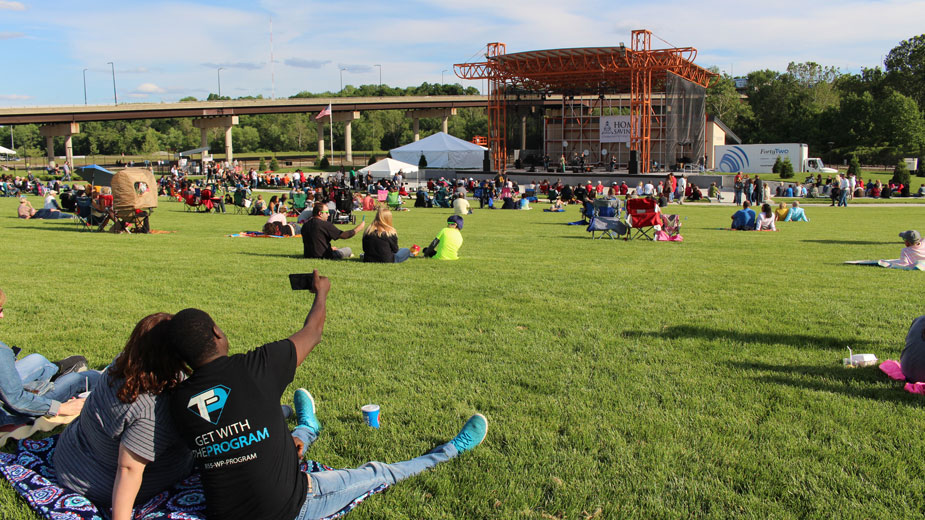Concert Venue Operators Hail Save Our Stages Act
YOUNGSTOWN, Ohio – A bill in the Senate would throw a financial lifeline to the smaller players in the nation’s concert industry, who have been hard hit by the coronavirus pandemic.
The $10 billion Save Our Stages Act was introduced July 22 by Sens. Amy Klobuchar, D-Minnesota, and John Cornyn, R-Texas. It would provide Small Business Administration grants for independent music venue operators, promoters and bookers – a group that has seen its livelihood dry up overnight. The grants would provide six months of financial support designed to keep venues afloat.
Government-mandated closures of arenas, theaters and smaller venues brought the concert industry to a halt in March, and there is no end in sight.
In the Mahoning Valley, venue operators hailed the bill.
“This would be very helpful,” said Eric Ryan, president of JAC Management, which operates Covelli Centre and Youngstown Foundation Amphitheatre in Youngstown and Packard Music Hall in Warren. Ryan also owns JAC Live, a concert promotion company.
“There has to be something done to help these venues that are completely out of business and not permitted to be in business due to government orders,” Ryan said. “Unfortunately, the sad but true reality is there are venues throughout the country that will not reopen if nothing is done to help.”
Small live music venues have been silenced by the pandemic, with 90% of owners, promoters and bookers reporting they are at risk of closing without additional financial assistance, according to a statement from Klobuchar. The venues are facing an estimated $9 billion in losses should ticket sales not resume until 2021.
The Save Our Stages Act is endorsed by the National Independent Venue Association, or NIVA.
JAC Management is a member of NIVA, as is the Robins Theatre in Warren and Westside Bowl in Youngstown.
Tom Simpson, who handles booking for the Robins and his own venue, The Kent Stage, was one of the first NIVA members in the state. He said the group has been working to obtain aid from Congress.
“A lot of these folks at the independent venues are in big trouble,” Simpson said. “There are 2,000 of them and some are going out of business, or will in six months if no help comes our way.”
Simpson said the first federal relief measure “did not cover casual employees and that’s most of us in this business. The second one, for unemployment benefits, did but it runs out this week.”
The venues have an economic ripple effect on their communities that can easily be seen on show nights.
“People don’t understand how big it is,” Simpson said. “It’s hotels, restaurants, bars, gasoline, parking, taxes. It’s visible in downtown Warren before and after shows [at the Robins Theatre].”
Independent venue operators have been one of the last sectors to get federal help, Simpson said. “[Ticket-buyers] have been very patient with us, holding on to their tickets and not asking for refunds,” he said.
Westside Bowl in Youngstown had been booking touring and regional bands up to five nights a week on its main stage, which holds close to 1,000 people, and its smaller basement venue.
But the shutdown has left owner Nate Offerdahl striving to get by largely as a takeout pizza shop. He welcomed the Save Our Stages Act, but acknowledged the road ahead is not an easy one.
“It’s the difference between us getting real worried in a couple months and us getting back on solid footing, so we can start booking shows [by the middle of 2021].”
Even if the shutdown is eased before the end of this year, Offerdahl says fear will put a damper on ticket sales.
“No one thinks we’ll be booking sold-out shows in the next 12 months,” he said. “How comfortable is the general public going to be in a room with 750 people? … And bands are not going to want to be there. They don’t want to be the band at whose show 100 people got sick.”
Offerdahl said the Save Our Stages Act has broad support in Congress and also stipulates that the money goes to independent operators and not concert industry giants such as Live Nation.
According to a press release from Sen. Klobuchar, the Save Our Stages Act would:
- Narrowly define independent live venue operators, promoters, and talent representatives to prevent large, international corporations from receiving federal grant funding.
- Direct the SBA to make grants to eligible venues equal to the lesser of either 45% of operation costs from calendar year 2019 or $12 million.
- Allow the SBA administrator to issue supplemental grants in the future if funding remains available and applicants can demonstrate need.
- Permit recipients to use grants for costs incurred during the COVID pandemic.
- Require recipients to return remaining funding after one year from the date of disbursement.
- Permit recipients to use grants for rent, utilities, mortgage obligations, protective equipment, payments to contractors, regular maintenance, administrative costs, taxes, operating leases and capital expenditures related to meeting state, local or federal social distancing guidelines.
- Authorize the appropriation of $10 billion for the grant program.
Copyright 2024 The Business Journal, Youngstown, Ohio.



